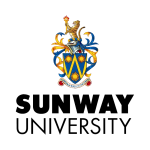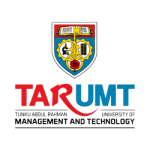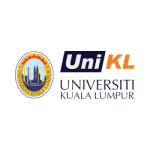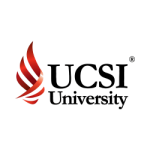In This Article
- What are A-Levels?
- Fast facts About A-Levels
- How are A-Levels structured?
- What A-Level subjects should you choose?
- Top 10 A-Levels subjects and learning outcomes
- A-Levels vs other pre-university courses
- What are the benefits of A-Levels?
- Who are A-Levels for?
- How to apply for A-Levels
- A-Level courses in Malaysia

What are A-Levels?
Also known as GCE Advanced Levels and modelled after the UK education system, A-Levels are equivalent to Sijil Tinggi Persekolahan Malaysia (STPM) here. It can take between 15 and 24 months to complete, although 18 months is the standard.
Students are usually expected to enrol in a minimum of three subjects, with four being the maximum. A-Levels are an attractive option for many high school graduates as they are globally recognised certificates that enable students to enter universities worldwide, including the United Kingdom, Australia, the United States and Canada.
Like other pre-university courses, entry to an A-Levels programme usually requires a minimum of five Cs in Sijil Pelajaran Malaysia (SPM), O-Level or an equivalent.
In Malaysia, two examination boards deliver A-Levels: Cambridge Assessment International Education (CAIE) and Edexcel. There are also multiple types of A-Level assessment bodies, such as the Council for Curriculum, Examination, and Assessment (CCEA) and the Oxford, Cambridge, and RSA Examination (OCR). Many Malaysian colleges offer A-Levels programmes, giving students a wide variety of options.
In 2023, 867,658 A-Level grades were awarded, which marked an increase of 2.2 per cent from 848,910 in 2022. The most popular subjects taken are maths, psychology and biology, with maths having the most entries at 96,853.
Fast facts about A-Levels
- A-Levels are made up of two parts: Advanced Subsidiary (AS Level) and A2. Each part makes up 50 per cent of the final grade.
- Grades for each subject go from A* to E, with A* being the highest possible grade.
- A-Levels enable students to further their studies not only in the UK but also in the USA, Canada and Australia, just to name a few.
- A-Levels are similar to STPM as they are both internationally recognised pre-university programmes. However, A-Levels only have two exams, while STPM has three.
- The top 10 most popular A-Level subjects are mathematics, further mathematics, physics, biology, accounting, business, psychology, chemistry, computer science and English literature.
- A-Levels are encouraged for those who want to pursue highly competitive courses such as medicine, pharmacy and dentistry.
How are A-Levels structured?
A-Levels are divided into two main parts: Advanced Subsidiary (AS Level) and A2. Each part contributes 50 per cent to the final grade. AS Level serves as the foundation, introducing students to the basics of their chosen subjects, while A2 delves into more complex topics. Exams at the end of each level determine the final grade.
In the assessment process, there is a key difference between the Cambridge Assessment International Education (CAIE) and Edexcel. For Edexcel, students can repeat individual subjects to improve their marks, and only the highest mark will be considered. In contrast, Cambridge requires repetition of the entire level, namely AS and/or A2.
Grades for each subject range from A* to E, with the best possible score being 3A* for three subjects and 4A* for four subjects. A* is not applicable at the AS Level and is only available for A2 exams.
Advanced Subsidiary (AS Level):
- Focuses on the foundation of chosen subjects
- First part of A-Levels
- Makes up 50 per cent of the final grade
A2 Level:
- Delves into the more complex side of chosen subjects
- Second part of A-Levels
- Makes up 50 per cent of the final grade
What A-Level subjects should you choose?
The CAIE offers 50 subjects, while Edexcel offers roughly 40. That said, not all of their listed subjects will be offered at Malaysian colleges. Only three to four subjects need to be taken for A-Levels. As the subjects you pick will greatly influence your academic journey and future career path, it is important to consider as many factors as possible. Here are some of the main ones to take into account:
- University course requirements: Check the prerequisites for the degree you intend to pursue. Certain courses may mandate specific A-Level subjects.
- Interest and aptitude: Opt for subjects aligning with your passion and strengths. This will make it more likely for you to engage with your subjects, which can also lead to better academic performance.
- Career aspirations: Identify your ideal career path and choose A-Level subjects that provide a solid foundation for your desired profession.
- Subject combinations: While some universities may require specific subject combinations to qualify for their bachelor’s degrees, a diversified selection can keep your options open, especially if you are unsure about your career path.
Top 10 A-Levels subjects and learning outcomes
| Subject | Learning Outcomes |
|---|---|
| Mathematics | Develops strong analytical and problem-solving skills |
| Further Mathematics | Prepares students for higher-level mathematical study and fosters rigorous reasoning |
| Physics | Provides a solid understanding of the main theoretical concepts and current applications of physics |
| Chemistry | Provides a comprehensive understanding of the main theoretical concepts and current applications of chemistry |
| Biology | Provides a holistic understanding of the main theoretical concepts and current applications of biology |
| Economics | Develops insights into economic principles |
| Business | Equips students with decision-making and strategy-developing skills for a dynamic business environment |
| Psychology | Provides an understanding of psychological concepts, theories and research methodology |
| Computer Science | Develops programming and problem-solving skills |
| English Literature | Enhances critical analysis and communication skills |
As mentioned earlier, choosing the right combination of A-Level subjects is key to qualifying for specific bachelor's degrees.
A-Levels vs other pre-university courses
| Aspect | A-Levels | STPM | Diploma | American Degree Transfer Program (ADTP) | Western Australian Matriculation (AUSMAT) | Canadian International Matriculation Programme (CIMP) | Foundation |
|---|---|---|---|---|---|---|---|
| Duration | 15 to 24 months | 18 months | 24 to 30 months | 24 months | 7 to 10 months | 12 to 15 months | 24 months |
| Programme Structure | Has two levels called AS and A2, which foster critical thinking and in-depth knowledge of chosen subjects | Modular system that has continuous assessments with a bigger focus on soft skills like leadership and communication | Practical-oriented, specific field of study | Broad-based, learning-driven education | Assignment-based with continuous assessment | Interactive learning focus with a progressive accumulation of marks | Tailored to degree courses offered by the university, and a combination of compulsory, elective, and general studies subjects |
| Assessment Method | Final examinations at the end of each level | School-based assessment (20-40%) and centralised examinations (60-80%) at the end of each term | Mix of assignments, coursework and examinations | Mix of exams, coursework, assignments, presentations, quizzes and research papers | 50% coursework and 50% exams | 70% coursework and 30% final examinations | Mix of coursework, exams, quizzes and final assessments |
| Recognition by Universities | Widely recognised by local and international institutions | Recognised by local and international universities | Accepted by specific institutions | Recognised by American universities | Recognised by local and international institutions | Recognised by local and international institutions | Recognised by the university that provides the foundation and private universities (may vary from institution to institution) |
| Entry Requirements for Universities | Subject-specific requirements, depends on the course | Minimum CGPA of 2.00 or minimum of 2 Principal Cs (C- is not counted) | Course-specific requirements | Completion of approximately 60 credits | Varies according to university | Varies according to university | Varies according to university |
| No. of subjects | 3 to 4 | 4 to 5 | Varies according to course | 20 | 5 | 6 | Varies according to course |
What are the benefits of A-Levels?
- Global recognition and versatility
A-Levels have global recognition, making it easier for students to pursue higher education at universities in the USA, UK, Canada and Australia. The qualification is among the most popular entry requirements for university and grants students the flexibility to choose from a diverse range of academic institutions and programmes. - In-depth subject mastery
A-Levels offer a focused and in-depth study of the chosen subjects. Unlike broader pre-university programmes, A-Levels allow students to delve more deeply into specific areas of interest. This enhances their understanding and lays a strong foundation for more advanced studies in those subjects at the university level. - Wealth of resources
As A-Levels are so widely recognised and have a decades-long history, plenty of resources are available for students in the form of past years’ papers, marking systems and revision problems. All these will provide a substantial leg up in acing the exams. - Allows you to keep your options open
Compared to foundation or diploma courses that are more specialised, A-Levels enable you to choose from a wider variety of university programmes. This will be particularly beneficial if you are still deciding the degree you want to pursue. - Development of critical-thinking skills
A-Levels are designed to foster critical thinking and analytical skills. Their examination-based assessments require students to apply their knowledge to solve problems and analyse information. This emphasis on critical thinking has far-reaching benefits that will prepare you for the challenges of higher education and future professional endeavours.
Who are A-Levels for?
A-Levels hold many advantages for one’s education and career. However, due to its nature and structure, it may be a better fit for certain individuals than others.
You may want to consider pursuing A-Levels if you:
- Aspire to further your studies overseas
If your goal is to enrol in universities internationally, A-Levels are a good bet as it is one of the most globally recognised qualifications. - Are interested in a competitive degree
This includes courses such as medicine, pharmacy and dentistry. As A-Levels are considered one of the more academically and intellectually rigorous courses, excelling in them can help you stand out on your applications. - Thrive in exam-based assessments
A-Levels are 100 per cent exam-based. As such, you will perform well if you enjoy the challenge of showcasing your knowledge and analytical skills through written exams.
You may want to consider an alternative to A-Levels if you:
- Prefer continuous assessment and coursework
- A-Levels may not be the most suitable choice if you thrive better in an educational environment that takes a more practical or vocational approach.
- Seek a faster path to university
A-Levels can take up to 24 months, and if you're looking for a faster route to university, you might consider other pre-university courses with a shorter duration, such as a foundation or AUSMAT. - Have a specific field of study in mind
If you’re already certain about the field you want to study and work in, a foundation or diploma course may be more up your alley as they tend to be more specialised. In many cases, foundations and diplomas are tailored to prepare you for the bachelor’s degree offered by the same university so you can stay fully focused on your discipline of choice from start to end.
How to apply for A-Levels
- Select an accredited institution
Before kick-starting the application process, ensure that your institution of choice is accredited. Accreditation ensures that the institution meets quality standards and can award you with a recognised qualification. - Check entry requirements
The entry requirements for A-Levels are largely similar across colleges, with some slight variations. Review the entry requirements beforehand to ensure you meet the academic prerequisites and any additional criteria specified, such as language proficiency.
For reference, here are the general requirements for admission to an A-Levels programme:
SPM/IGCSE/O-Levels
Minimum of five credits (including English)
UEC
Minimum of 3Bs (including English)
There may also be minimum required grades you need to achieve to take certain A-Level subjects, such as physics, chemistry, biology and further mathematics. - Prepare required document
Gather the necessary documents, including academic transcripts, identification and passport-sized photos. Some institutions may require personal statements or recommendation letters. - Submit your application
Complete the application form provided by the institution. Ensure all personal and academic information provided is accurate and take note of the submission deadline. Submit your form along with the aforementioned required documents. - Application review
The institution will review your application and documents. This process may include an interview or entrance assessment, depending on the institution's policies. - Receive offer letter
If all goes well, you should receive an offer letter from the institution. Your letter should outline details such as course duration, fees, and enrolment procedures. You are officially ready to start your A-Levels journey.
A-Level courses in Malaysia
Many of Malaysia’s top institutions offer distinguished A-Level programmes. To narrow down your options, here are seven colleges you can consider:
1. Sunway College

Sunway College was established in 1987 and now sits on a 24-acre campus in Sunway City, Selangor. In 2022, Sunway University was awarded a Platinum Putra Brand Award in the Education and Learning category. Since 2017, it has also been recognised as a Premier Digital Tech University for its commitment to developing digital-ready graduates.
Its A-Levels programme is called the Cambridge GCE Advanced-Level and is conducted by the CAIE. In June 2023, 14 of its students received 15 awards at the Outstanding Cambridge Learner Awards Ceremony, including Top in the World and Top in Malaysia.
| Information | Details |
|---|---|
| Intakes | January, August and September |
| Duration | 18 or 21 months |
| Subjects offered |
|
| Scholarships |
Leadership Scholarships |
2. Taylor’s College

Taylor’s College was founded in 1969 and now shares an idyllic lakeside campus with its university counterpart in Subang Jaya, Selangor. According to its website, it has sent 1,000 students to the top 200 universities in the world every year. Its Cambridge A-Levels programme was established more than 30 years ago in 1991. In 2004, Taylor’s College received the honour of being the first institution to be awarded the prestigious International Fellowship Centre status in Malaysia by Cambridge International Examinations (CIE).
| Information | Details |
|---|---|
| Intakes | February, April, Advance August (starts in July) and August |
| Duration | 1 year |
| Subjects offered |
|
| Scholarships | Taylor's College Merit Scholarship Taylor's College Talent Scholarship Taylor's College Sports Scholarship Taylor's College Community Scholarship Taylor's Excellence Award 2024 |
3. HELP University

Since its inception in 1986, HELP University has two campuses in Kuala Lumpur and Shah Alam, Selangor. The university was rated by Malaysian employer recruitment and education website, Talentbank, as the Employers’ Choice of University for 2024. The Employers’ Choice of University list is curated based on the Talentbank National Graduate Employability Index (GE Index). This index evaluates and benchmarks the employability of graduates in the country and draws insights from feedback provided by over 700 leading employers in diverse industries through surveys and assessments.
In 2021, it achieved the top spot among 650 universities in Asia for Outbound Student Exchange Programme under the QS Asia University Rankings.
At HELP, there are two types of A-Level exams offered: one by the CAIE and the other by Edexcel. Students from HELP’s A-Levels programme have successfully entered some of the world’s top universities, such as Harvard, Oxford, Cambridge, Princeton and Stanford.
| Information | Details |
|---|---|
| Intakes | January, March and July |
| Duration | 18 months |
| Subjects offered |
|
| Scholarships | Distinction Award |
4. UOW Malaysia KDU College

Built in 1983, UOW (originally known as KDU) was one of Malaysia’s first private colleges to have its own purpose-built campus. Today, it has three campuses, with its main one located in Glenmarie. It also has two university college campuses in Penang.
Its A-Levels programme is known as the Cambridge Assessment International Education A Level and is delivered at the Glenmarie campus.
| Information | Details |
|---|---|
| Intakes | July and August |
| Duration | 18 to 24 months |
| Subjects offered |
|
| Scholarships | Driving Dreams Scholarship High Achievers Scholarship UOW Malaysia Excellence Award Scholarship Vice-Chancellor Merit Award HOPE Bursary |
5. INTI International University & Colleges

Established in 1986, INTI International University & Colleges has now grown to four campuses in Negeri Sembilan, Subang, Penang, and Sabah. In August 2023, it was honoured with the Institutional Award by the Private Education Excellence Awards 2023.
Its A-Levels programme is called Cambridge A Level and is offered at two of its campuses in Penang and Subang. Students of INTI’s programme have flourished, having achieved Top in the World and Top in Malaysia for Biology, Business, Economics, and more in the Outstanding Cambridge Learner Awards.
| Information | Details |
|---|---|
| Intakes | January and July |
| Duration | 18 months |
| Subjects offered |
|
| Scholarships | INTI Merit Scholarship INTI Sports Excellence Scholarship INTI Chairman Award INTI Secondary School Teacher Recognition Award |
6. UCSI College

UCSI College was founded in 1986 as a computer training institute. Since then, it was upgraded to college status in 1990 before finally achieving full-fledged university status in 2008. Currently, it has campuses in Kuala Lumpur, Kuching, Seremban and even Bangladesh, becoming the first foreign university to operate its branch campus in the country. For the QS Asia University Rankings 2024, it scaled 11 spots to nab a ranking of 61 and mark the seventh consecutive year of improved rankings.
Its A-Levels programme is known as Cambridge A-Levels and boasts an impressive 100 per cent pass rate. 50 per cent of its students have also scored straight As, according to the June 2022 CAIE examination series.
| Information | Details |
|---|---|
| Intakes | January, May, August and September |
| Duration | 18 months |
| Subjects offered |
|
| Scholarships | UCSI College Pre-U Scholarship (A-Level) |
7. SEGi University & Colleges

SEGi University & Colleges first started as a Systematic College in 1977. It has since expanded to five campuses spread across Subang Jaya, Kota Damansara, Kuala Lumpur, Penang and Sarawak. In 2023, it won a ‘Best Academic Institutions’ award at the 11th edition of the Golden Globe Tiger Awards. In 2021, it was awarded the QS 5 Stars Plus status for attaining the QS 5 Stars rating in eight evaluations, according to the QS World Universities Rankings 2022.
Its A-Levels programme is awarded by Edexcel and delivered at SEGi’s college campus in Sarawak.
| Information | Details |
|---|---|
| Intakes | January, May and September |
| Duration | 18 months |
| Subjects offered |
|
| Scholarships | SEGi High Achievers Scholarship (HAS) |
Note: The information provided in this article is accurate to the best of our knowledge at the time of writing. Please verify the latest information with the institution.















